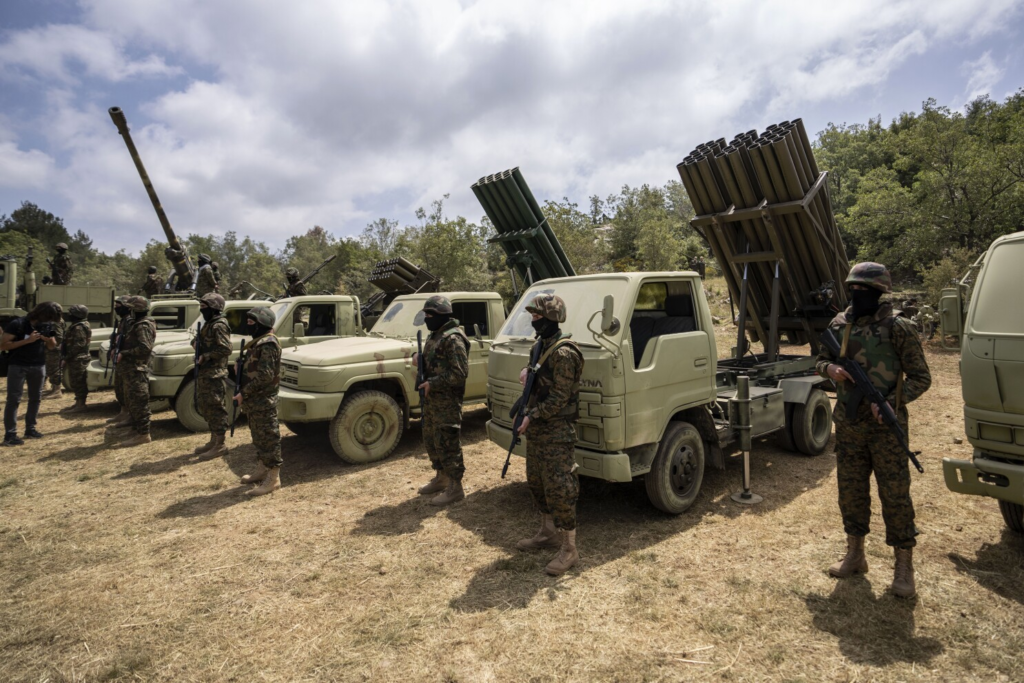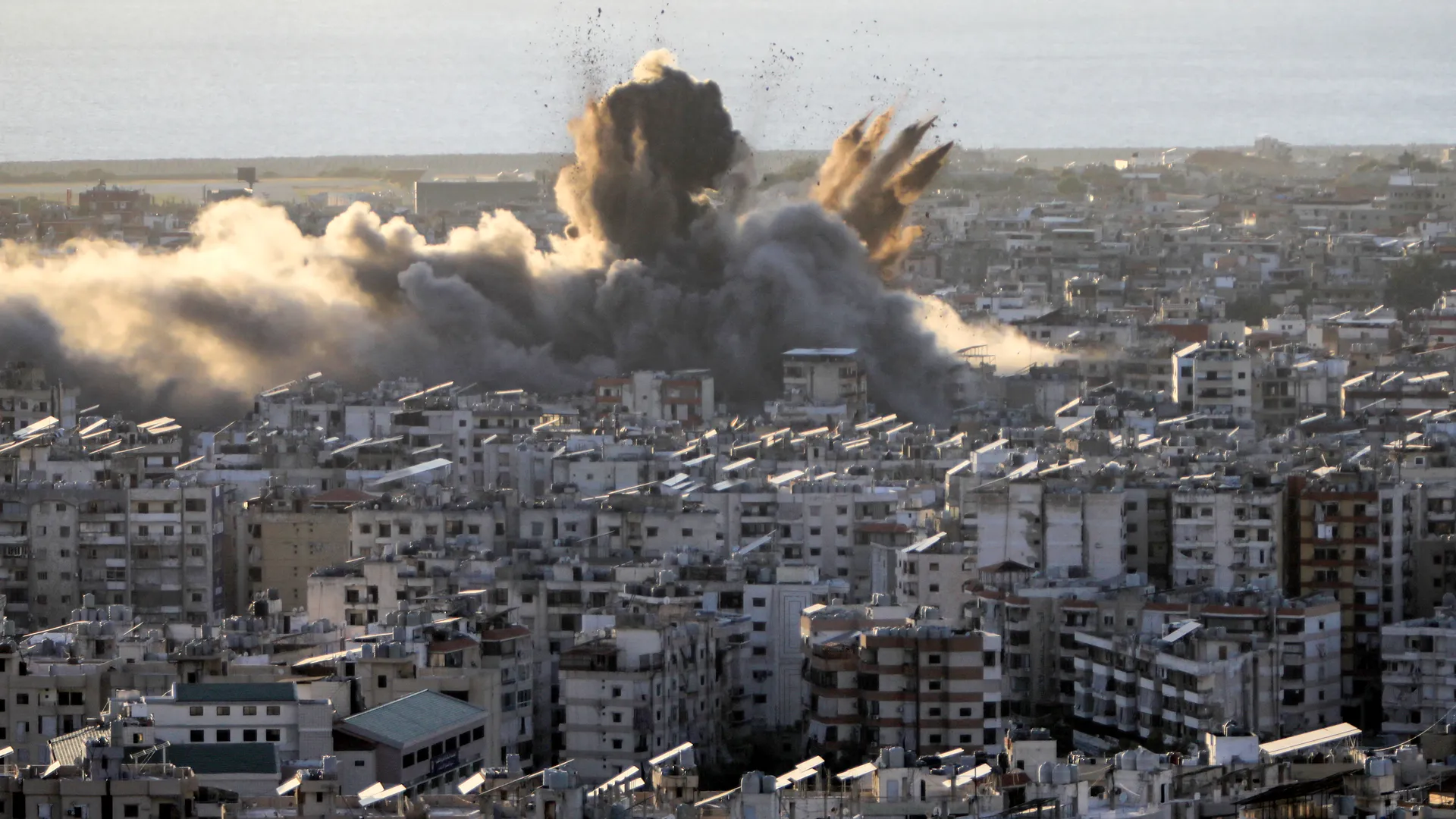In a significant diplomatic development, Israel has presented the United States with a list of demands as conditions for a diplomatic solution to end the ongoing conflict in Lebanon. The document, delivered to U.S. officials, outlines Israel’s stance on security and operational freedom in the region, reflecting its concerns about Hezbollah’s presence and the potential for rearmament near the border.
However, the feasibility of these demands has raised questions, as the international community, including Lebanon, may not agree to the proposed conditions. As diplomatic talks intensify, U.S. efforts to mediate and seek a lasting resolution continue.
Israel’s Key Demands for Ending the War
Israel’s primary demands revolve around ensuring the security of its northern border and maintaining its military advantage in the region. One of the core conditions outlined in the document is Israel’s insistence on “active enforcement” to prevent Hezbollah from rearming or rebuilding its military infrastructure near the Israeli-Lebanese border.
This demand comes from Israel’s deep-seated security concerns about Hezbollah’s capabilities, as the group has maintained a stronghold in southern Lebanon despite previous international efforts to disarm it.
The Israeli government has emphasized the need for military presence and control in the region to actively monitor and enforce the disarmament of Hezbollah. This means that Israeli forces would likely continue operations on the ground, ensuring that Hezbollah does not rebuild its military infrastructure.
Such a provision would give Israel a significant level of authority over security matters in southern Lebanon, which may not be acceptable to Lebanon or the broader international community.
Read : Israel strikes on Beirut and Gaza After Drone Attack Near Netanyahu’s Home
Additionally, Israel has demanded that its air force be granted freedom of operation in Lebanese airspace. This condition would enable Israel to maintain aerial superiority, allowing its military to conduct surveillance and, if necessary, strike Hezbollah targets without restrictions. The ability to control the skies over Lebanon is seen as a vital aspect of Israel’s overall strategy to prevent Hezbollah’s resurgence and ensure its own security.
Read : Israeli Foreign Minister Threatens Iran, Saying It ‘Deserves to Be Destroyed’
These demands highlight Israel’s desire for robust and enforceable security measures as a precondition for any ceasefire or diplomatic solution. However, U.S. officials have expressed skepticism about whether Lebanon or other global actors would agree to such terms, given the implications for Lebanese sovereignty and the potential for escalating tensions in the region.
U.S. Mediation Efforts and Challenges
As Israel presented its conditions, the United States found itself in the challenging position of balancing Israel’s security concerns with the need to ensure a stable and peaceful resolution to the conflict.
The White House special envoy, Amos Hochstein, has been actively involved in mediating between the two sides, visiting Beirut to discuss potential pathways to end the war. Hochstein’s efforts are part of a broader U.S. push to prevent further escalation and foster peace in the Middle East.
However, the U.S. faces considerable obstacles in mediating this conflict. One of the main challenges is the implementation of UN Resolution 1701, which was adopted in 2006 to end the last significant conflict between Israel and Hezbollah. The resolution called for southern Lebanon to be free of any military forces other than those of the Lebanese state.

However, Hezbollah’s continued presence in the area, coupled with its military capabilities, has undermined the resolution’s effectiveness. This issue lies at the heart of the current conflict, as Israel views Hezbollah as a significant threat to its security.
Hochstein’s remarks during his visit to Lebanon underscore the complexity of the situation. He acknowledged that simply reaffirming commitment to UN Resolution 1701 is not sufficient to bring about lasting peace. Instead, both sides must agree to a new formula that addresses the current realities on the ground.
The U.S. envoy emphasized the importance of finding a diplomatic solution that not only ends the immediate conflict but also prevents future flare-ups between Israel and Hezbollah.
The challenge for the U.S. is to bridge the gap between Israel’s stringent security demands and Lebanon’s resistance to foreign military presence and control within its borders. Moreover, the international community, particularly the United Nations, would need to support any agreement to ensure its legitimacy and enforceability.
The Regional and International Implications
The conflict between Israel and Hezbollah has far-reaching implications, not only for Lebanon and Israel but for the entire Middle East. Hezbollah, which is backed by Iran, plays a critical role in the region’s geopolitical dynamics.
Iran’s support for Hezbollah has long been a point of contention for Israel, and the current conflict only intensifies the broader struggle for influence between Israel and Iran in the region. This proxy war, with Lebanon as the battleground, adds another layer of complexity to resolving the conflict.

For Lebanon, the ongoing conflict has exacerbated an already fragile political and economic situation. The country has been grappling with economic collapse, political instability, and widespread social unrest. The war with Israel further strains Lebanon’s ability to govern effectively and undermines the Lebanese Armed Forces’ efforts to maintain security in the south.
The presence of Hezbollah, which operates independently of the Lebanese government, continues to challenge Lebanon’s sovereignty and complicates any attempts at diplomatic resolution.
From an international perspective, the United States and other Western nations are focused on preventing the conflict from escalating into a broader regional war. The involvement of Iran and its influence over Hezbollah raises the stakes, as any misstep could potentially trigger a larger confrontation involving multiple nations.
The United States, in particular, seeks to avoid such an outcome, as it would destabilize the Middle East and create a humanitarian crisis.
At the same time, international pressure on Israel to ease its military operations and agree to a more diplomatic approach will likely grow. While Israel’s security concerns are legitimate, the international community may not support Israel’s demands for unchecked military operations in Lebanon. Balancing the need for security with respect for Lebanese sovereignty will be crucial in any diplomatic negotiations.

The demands outlined by Israel to the United States for ending the war in Lebanon reflect its deep-seated security concerns regarding Hezbollah’s presence and potential rearmament near the Israeli border.
Israel’s insistence on active military enforcement and aerial superiority over Lebanese airspace has raised concerns about the feasibility of such conditions, particularly as Lebanon and the international community may be reluctant to agree to them.
As U.S. envoy Amos Hochstein works to mediate the conflict, the challenge lies in finding a solution that addresses both Israel’s security needs and Lebanon’s sovereignty.
The ongoing conflict between Israel and Hezbollah has far-reaching implications for the broader Middle East, and the international community’s involvement will be critical in ensuring a lasting and peaceful resolution.

